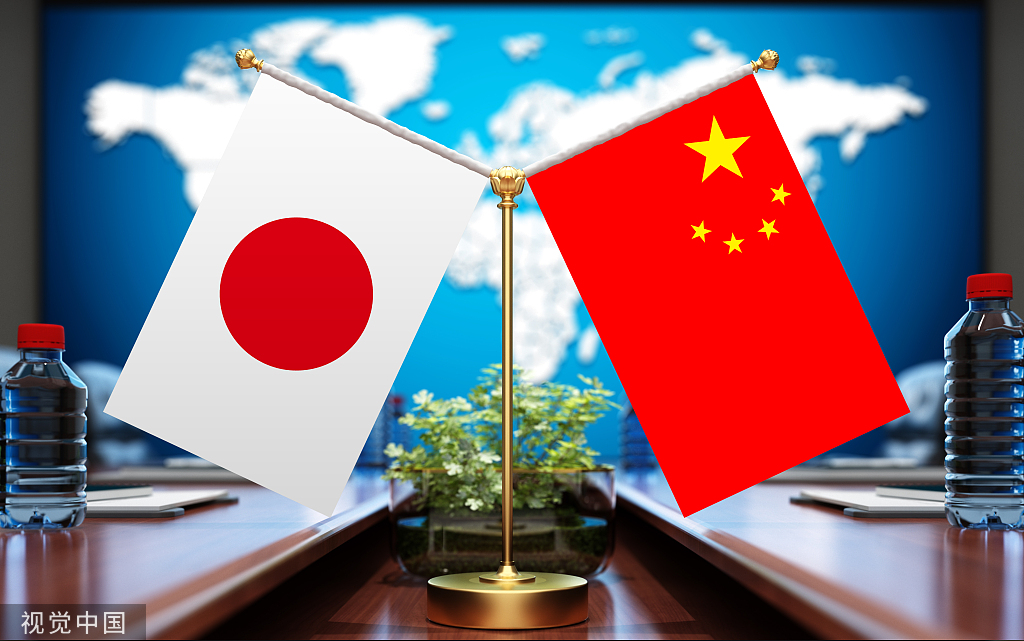Beijing, Tokyo agree to boost economic ties


Beijing and Tokyo secured 20 key points of consensus on Saturday, making a significant breakthrough in bilateral relations, which analysts said will further strengthen their commitment to cultivating stable, constructive economic and trade ties aligned with the demands of the new era.
The consensuses were reached during the sixth China-Japan High-Level Economic Dialogue — the first in six years — which was co-chaired by Foreign Minister Wang Yi and Japanese Foreign Minister Takeshi Iwaya and attended by officials from 15 government departments of both countries.
The key points of consensus include promoting the silver economy, expanding collaboration in third-party markets, strengthening supply chain cooperation, and expediting negotiations for a China-Japan-Republic of Korea free trade agreement.
"The close industrial cooperation and deeply intertwined economic interests, which have benefited both peoples, demonstrate that China and Japan are partners, not rivals, and they offer opportunities for each other, not threats," Wang said, emphasizing the value of mutual support over division.
Since the normalization of diplomatic ties in 1972, bilateral trade has surged more than 300-fold, standing at around $300 billion annually for the past 15 years, and cumulative two-way investment has reached nearly $140 billion, according to Wang.
He called on China and Japan — both major players in the global economy — to embrace innovation, enhance cooperation and minimize disputes, while cautioning against politicizing economic security.
Yang Bojiang, director of the Chinese Academy of Social Sciences' Institute of Japanese Studies, said, "Amid rising unilateral protectionism and a sluggish global economic recovery, strengthening China-Japan economic ties will help mitigate uncertainties in the world economy."
He added that China's high-quality development will offer significant opportunities for Japan.
Hidetoshi Tashiro, chief economist at Japanese consultancy Infinity LLC, noted that the dialogue "serves as a model for cooperation among non-US countries", especially at a time when "the United States appears to be reverting to a 19th century style of protectionism or mercantilism".
Tashiro said that if Japan and China use this momentum to advance a free trade agreement, "it will not only greatly contribute to their own economic development, but also shift the economic center of gravity from the US to East Asia, ensuring a smoother global economic cycle and fostering 21st century economic growth".
During his three-day stay in Tokyo, which ended on Sunday, Foreign Minister Wang also met with a number of key Japanese political figures including Prime Minister Shigeru Ishiba, Chief Cabinet Secretary Yoshimasa Hayashi, former Liberal Democratic Party secretary-general Toshihiro Nikai, and National Security Secretariat Secretary-General Masataka Okano.
Analysts said all these engagements underscored the importance both nations place on revitalizing their diplomatic and economic relations amid growing global uncertainty.
As bilateral ties enter a new phase, Wang urged Japan to view China objectively, build mutual trust, resist external interference, and uphold the political foundation of the relationship to contribute to the peace and prosperity of both nations as well as Asia.
During his meeting with Iwaya, which was the second in three months, Wang said that correctly understanding and addressing historical issues is crucial for Japan's postwar reintegration into the international community, serves as the political foundation for its relations with neighboring countries, and is a key measure of Japan's commitment to peaceful development.
He emphasized the importance of adhering to the four political documents between China and Japan, including the 1972 China-Japan Joint Statement and the 1978 Treaty of Peace and Friendship, which are legally binding and address historical issues and the Taiwan question.
"These agreements must be strictly upheld without ambiguity or regression," Wang said, warning that any distortion or violation could erode trust.
Yang, from the CASS institute, said, "The one-China principle, as established in the China-Japan joint statement and repeatedly reaffirmed thereafter, has a profound meaning beyond bilateral ties."
He described it as the political and legal foundation of contemporary China-Japan relations, as well as their mutual affirmation of the legal basis of the postwar Asia-Pacific order.
Highlighting that the Taiwan question lies at the heart of China's core interests, Yang said that any attempt by Japan to obscure historical facts regarding the question would lead to political mistrust, which would affect economic and cultural exchanges and ultimately harm the fundamental interests of both countries.

































